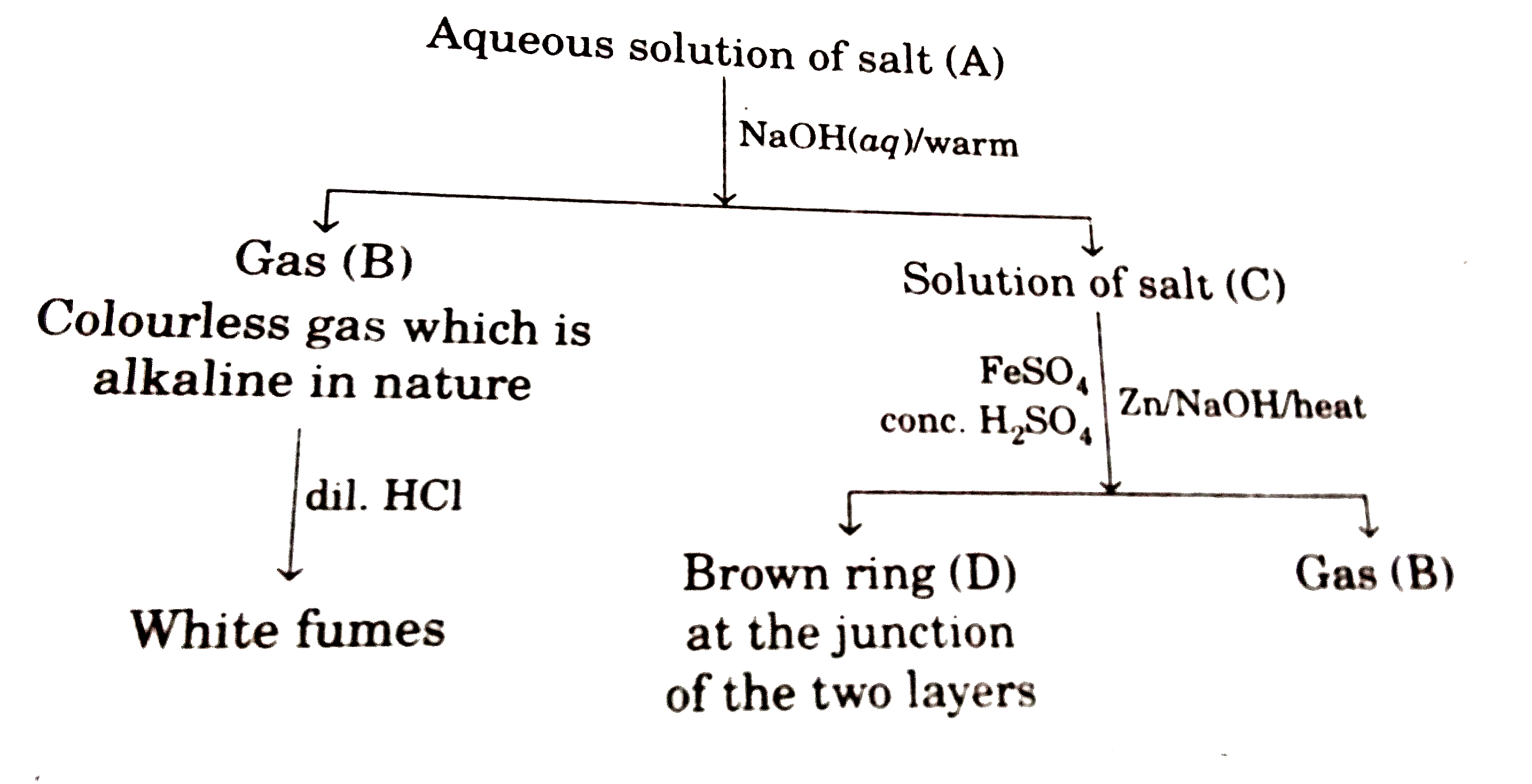
Salt (A) on heating gives a colourless neutral gas which supports combustion. From the aforesaid, flow diagram, answer the following questions.
The compound (A) contains the following acidic radical:
NO−2
NO−3
Br−
SO2−3
The correct Answer is:B
(A) Contains NO−3(C)→NaNO3
(B)→NH3(C)[Fe(H2O)5NO]SO4 or FeSO4.NO
(A)→NH4NO3
Topper's Solved these Questions
- SALT ANALYSISBOOK - GRB PUBLICATIONCHAPTER - SALT ANALYSISEXERCISE - Comprehension 10
1 Videos
- SALT ANALYSISBOOK - GRB PUBLICATIONCHAPTER - SALT ANALYSISEXERCISE - Comprehension 11
1 Videos
- SALT ANALYSISBOOK - GRB PUBLICATIONCHAPTER - SALT ANALYSISEXERCISE - Comprehension 8
1 Videos
- S BLOCK ELEMENTSBOOK - GRB PUBLICATIONCHAPTER - S BLOCK ELEMENTSEXERCISE - SUBJECTIVE TYPE
9 Videos
- THERMODYNAMICSBOOK - GRB PUBLICATIONCHAPTER - THERMODYNAMICSEXERCISE - All Questions
704 Videos
Similar Questions
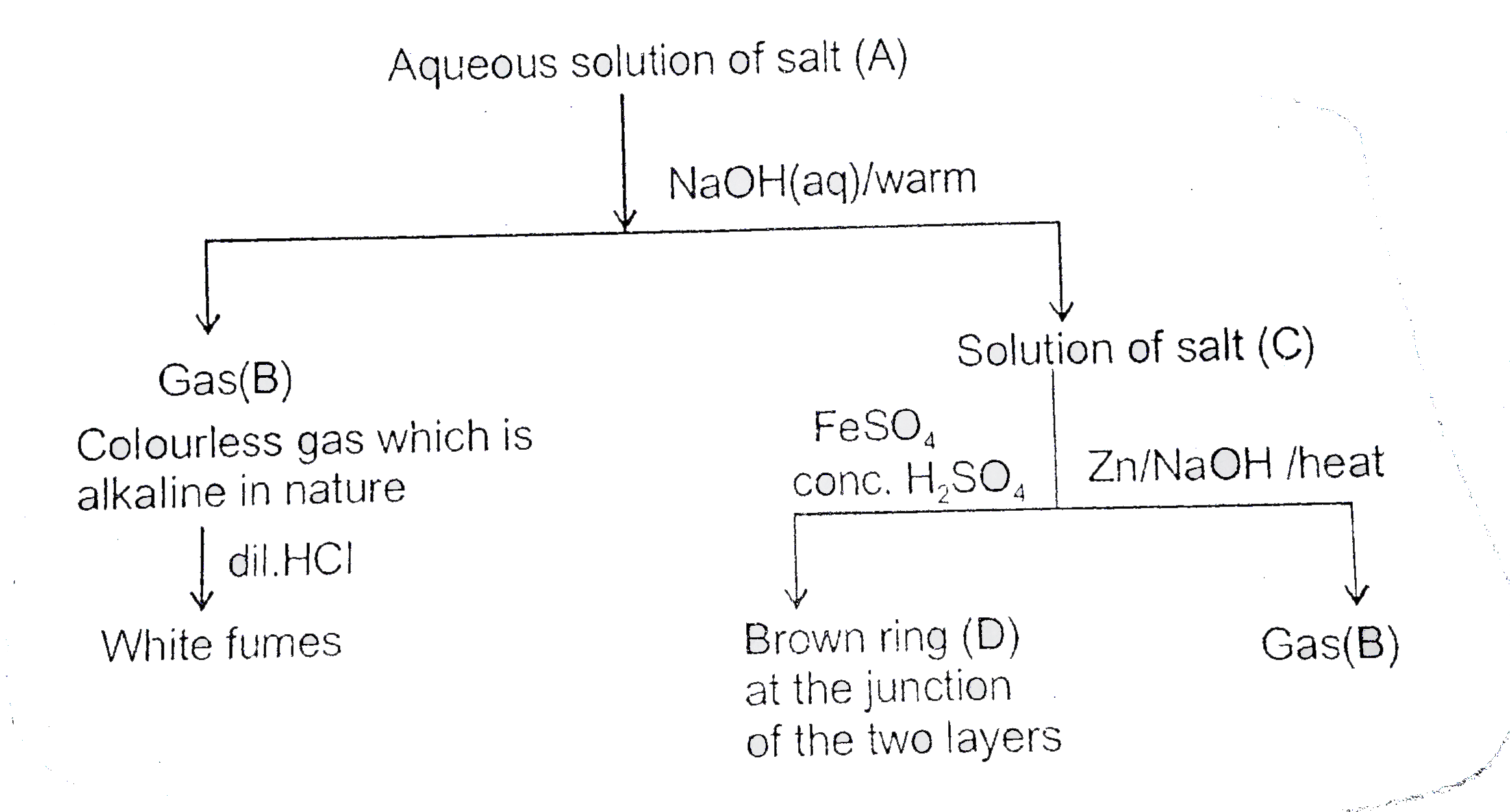
Salt(A) on heating gives a colourless neutral gas which supports combustion.
From the aforesaid, flow diagram, answer the following questions.
The compound (A) contains the following acid radical.
View Solution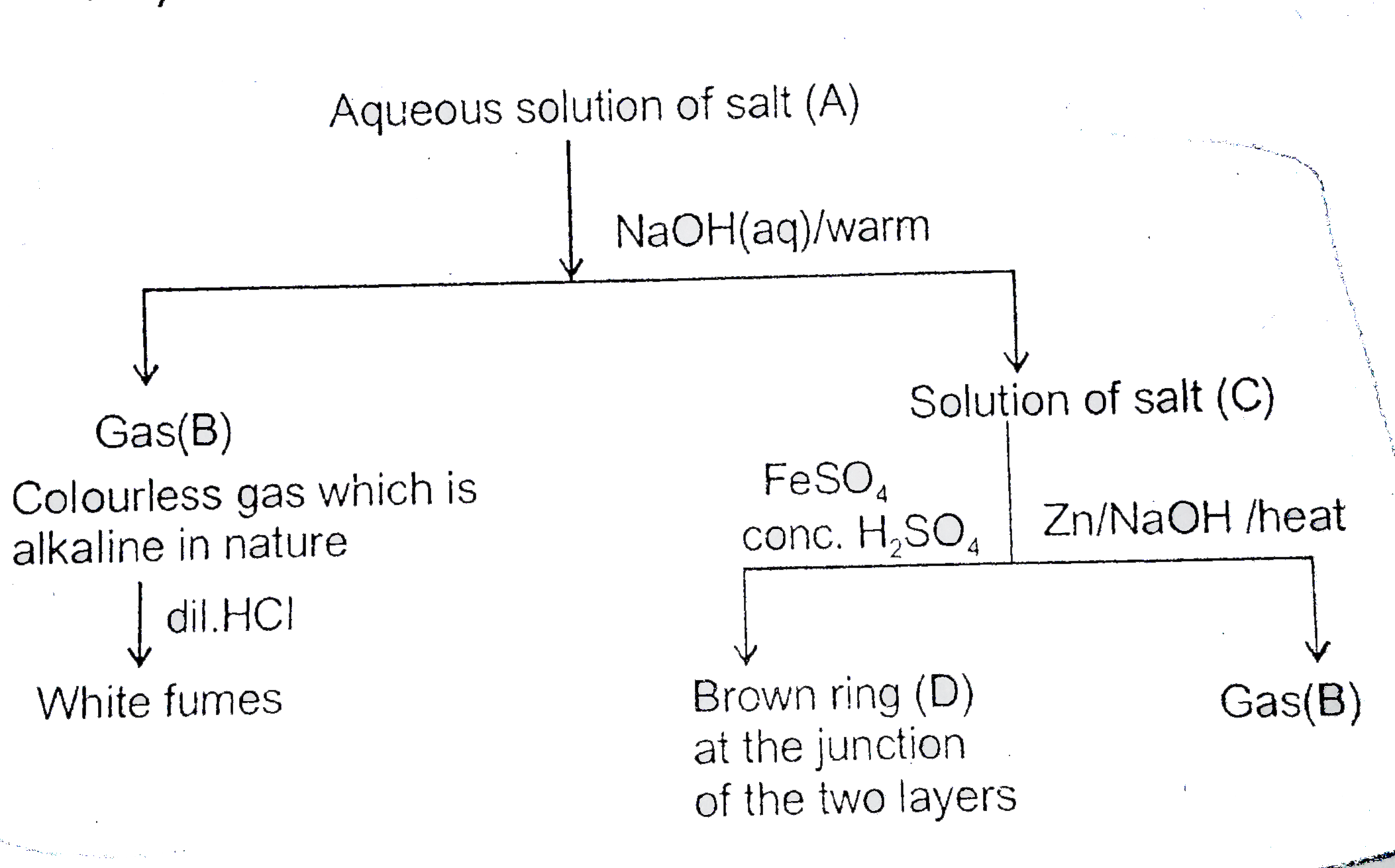
Salt(A) on heating gives a colourless neutral gas which supports combustion.
From the aforesaid, flow diagram, answer the following questions.
Which of the following statement is correct ?
View Solution
Knowledge Check

Salt(A) on heating gives a colourless neutral gas which supports combustion.
From the aforesaid, flow diagram, answer the following questions.
The compound (A) contains the following acid radical.ANO−2BNO−3CBr−DSO2−3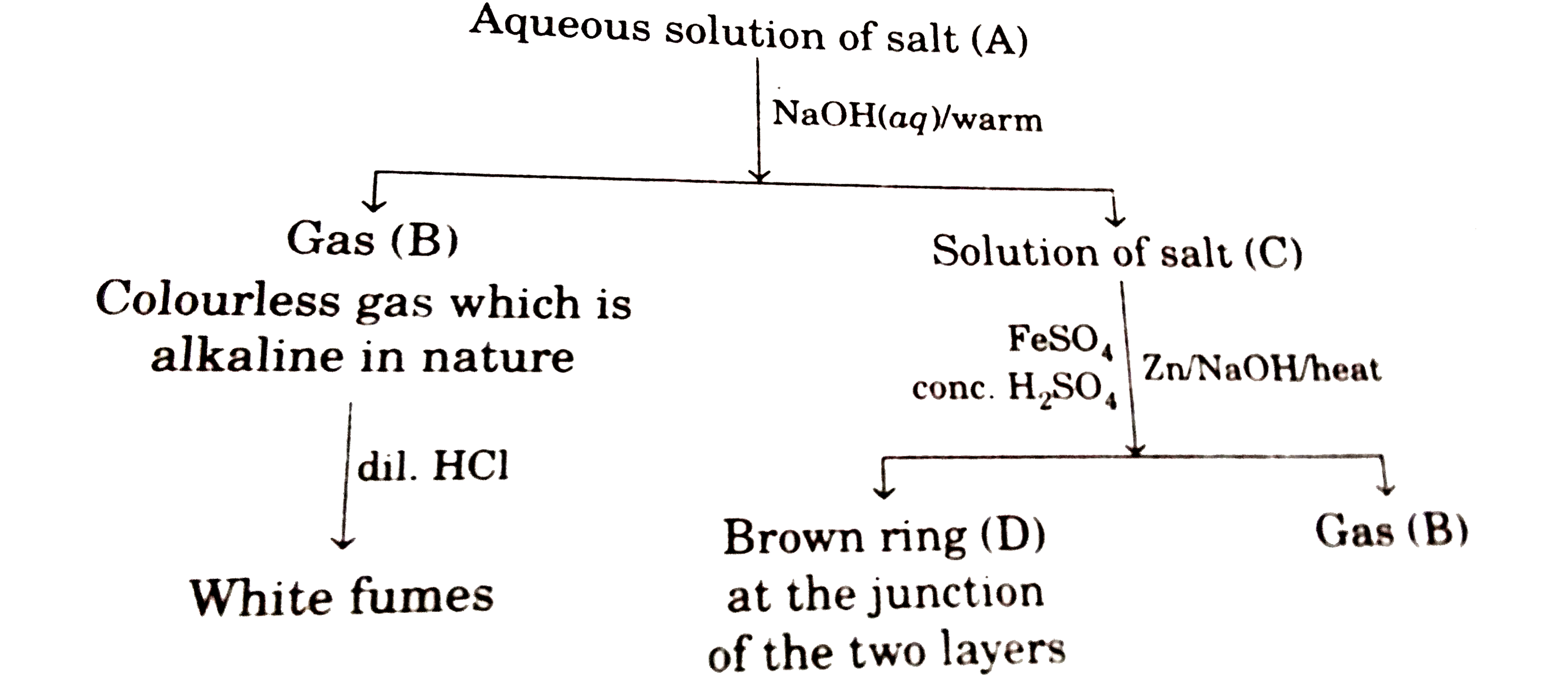
Salt (A) on heating gives a colourless neutral gas which supports combustion. From the aforesaid, flow diagram, answer the following questions.
Which of the following statement is correct?ASalt (A) gives yellow precipitate with chloroplantinic acid as well as with sodium cobaltinitrite.BThe brown ring is formed due to the formation of nitroso ferrous sulphate [Fe(NO)]2+SO−4.CSalt C reacts with silver nitrate solution to form white precipitateD(a) and (b) both
Salt(A) on heating gives a colourless neutral gas which supports combustion.
From the aforesaid, flow diagram, answer the following questions.
Which of the following statement is correct ?ASalt (A) gives yellow precipitate with chloroplatinic acid as well as with sodium cobaltinitrite.BThe brown ring is formed due to the formation of nitroso ferrous sulphate [Fe(NO)]2+SO−4.CSalt C reacts with silver nitrate solution to form white precipitate.D(A) and (B) both.
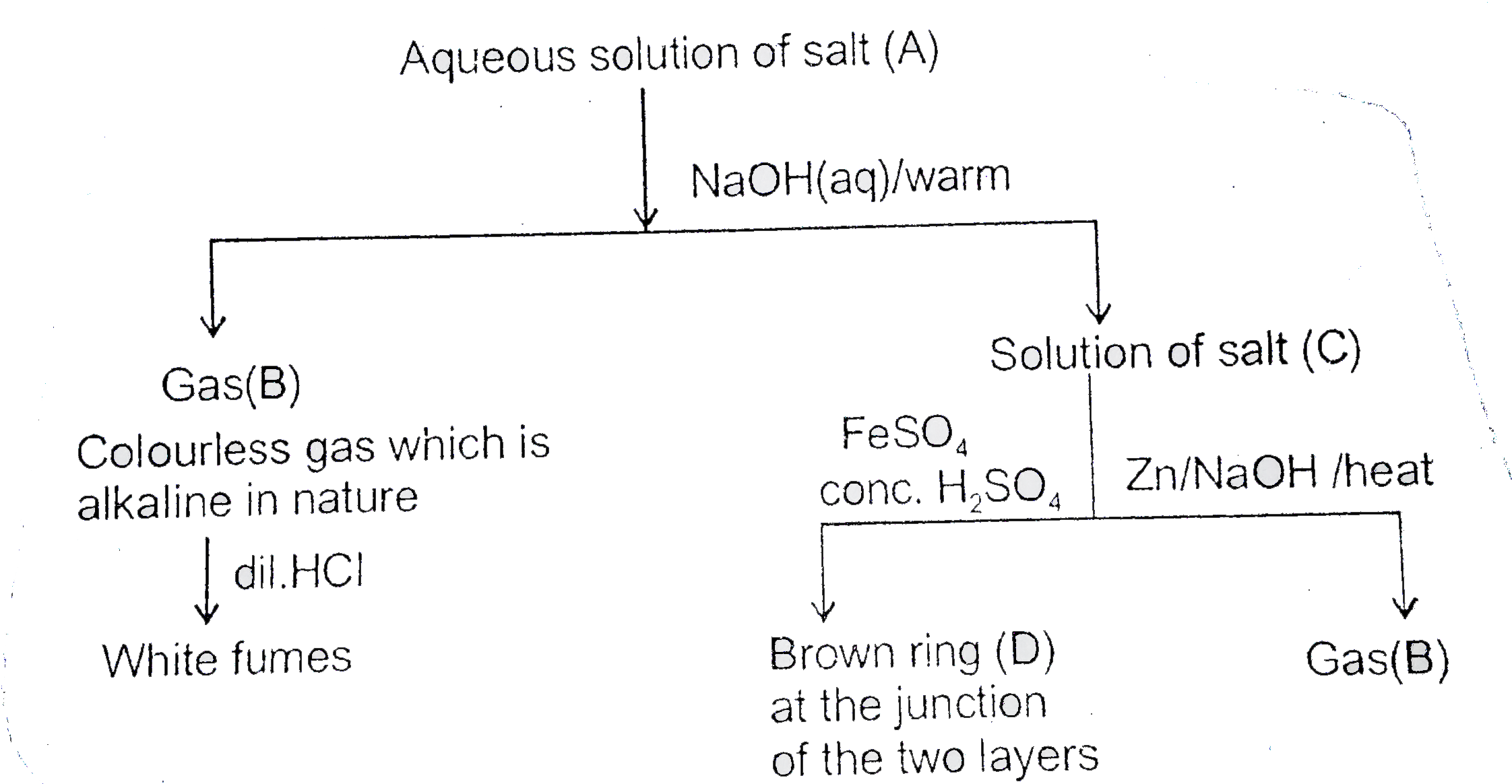
Salt(A) on heating gives a colourless neutral gas which supports combustion.
From the aforesaid, flow diagram, answer the following questions.
The basic radical of salt (A) and gas B both gives brown precipitate with Nessler's reagent.The composition of the brown precipitate is:
View SolutionApart from N2O which other colourless gas supports combustion ?
View Solution
Salt(A) on heating gives a colourless neutral gas which supports combustion.
From the aforesaid, flow diagram, answer the following questions.
The basic radical of salt (A) and gas B both gives brown precipitate with Nessler's reagent.The composition of the brown precipitate is:
View Solution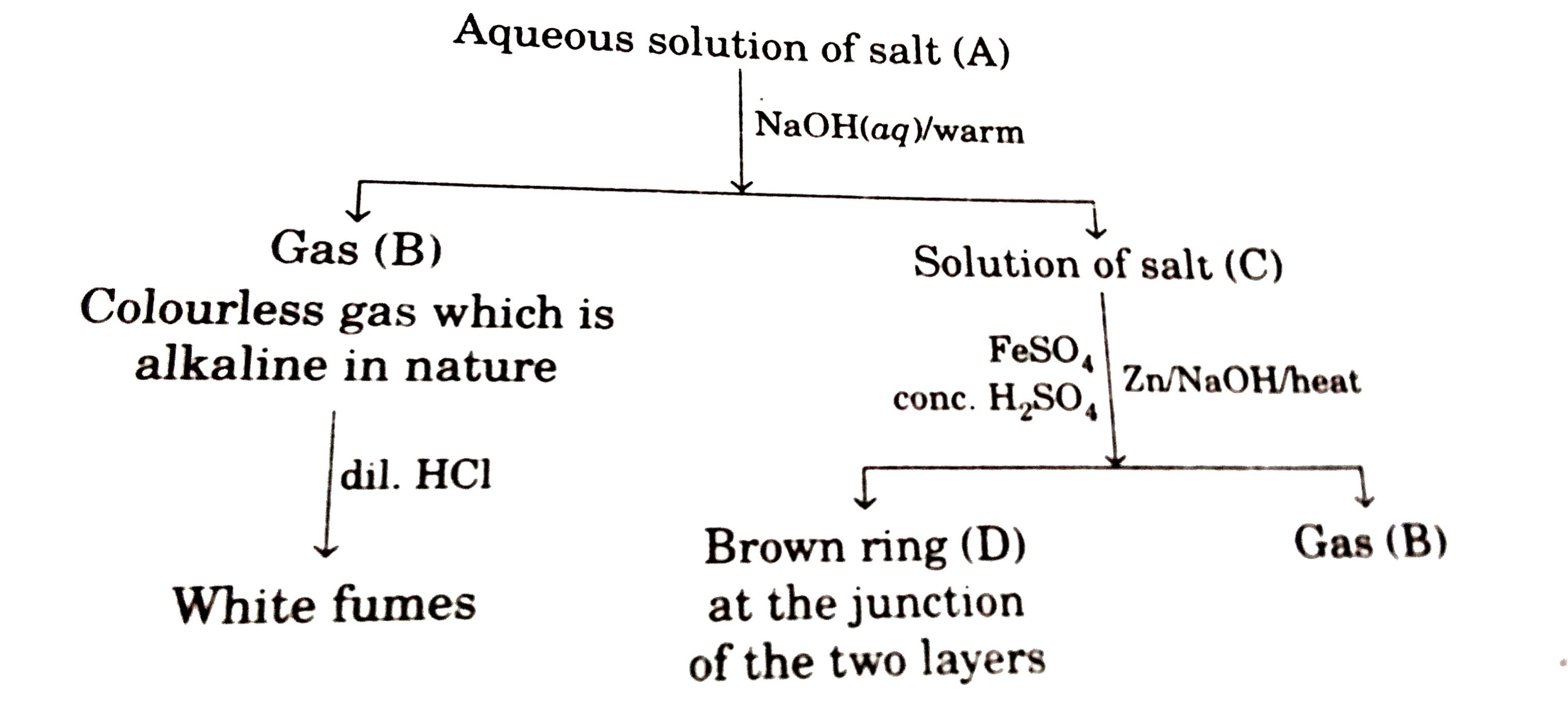
Salt (A) on heating gives a colourless neutral gas which supports combustion. From the aforesaid, flow diagram, answer the following questions.
The basic radical of salt (A) and gas (B) both gives brown precipitate with Nessler's reagent. the composition of the brown precipitate is:
View SolutionObserve these compounds and give answer of following question :
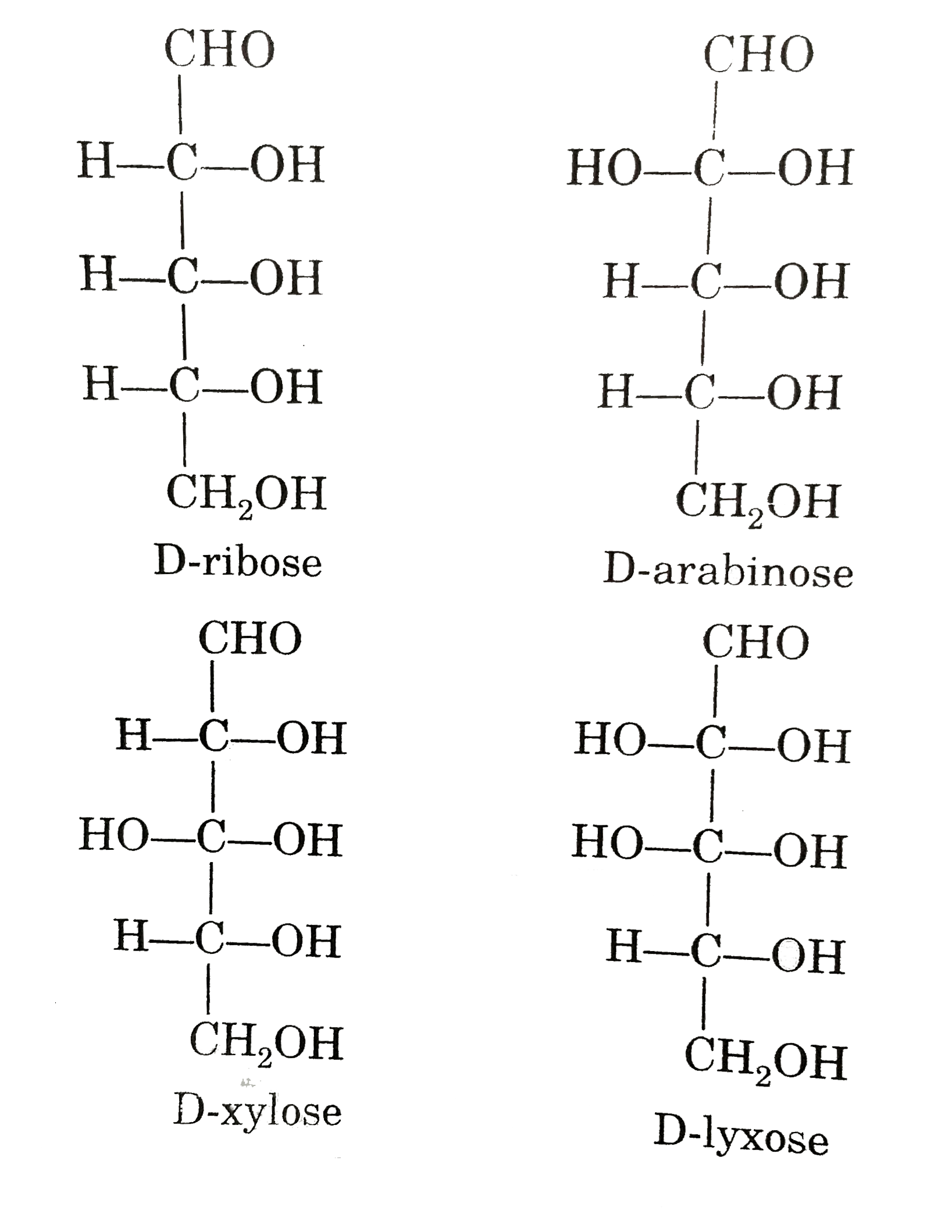
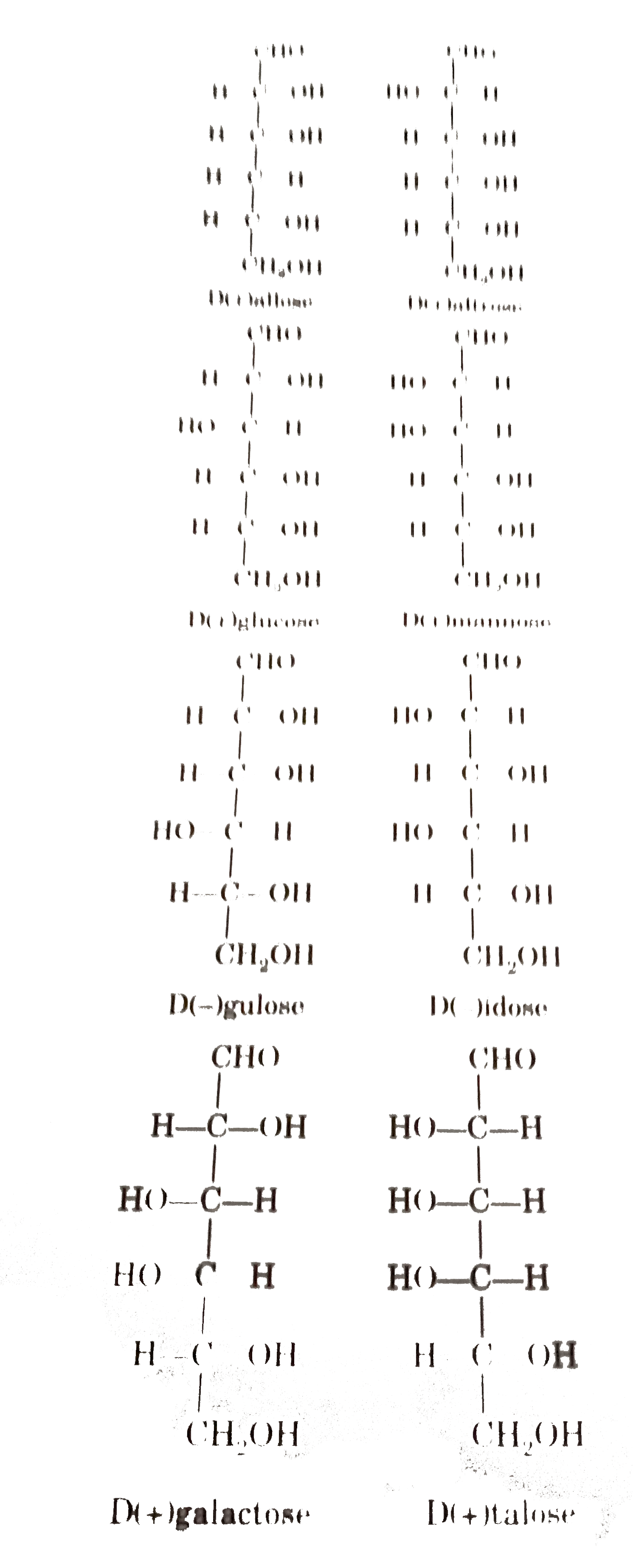
Identify the epimers from the following :
View Solution
